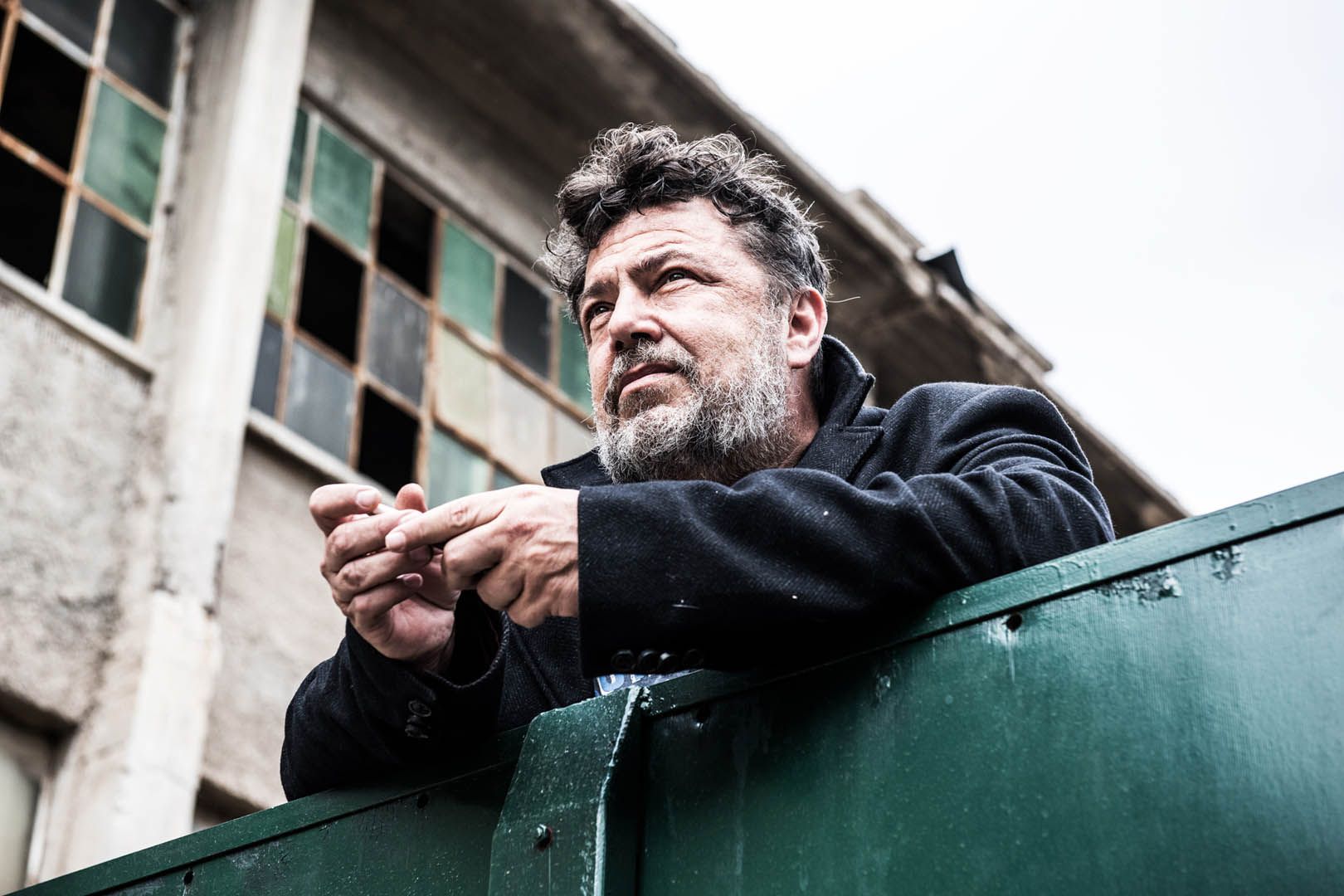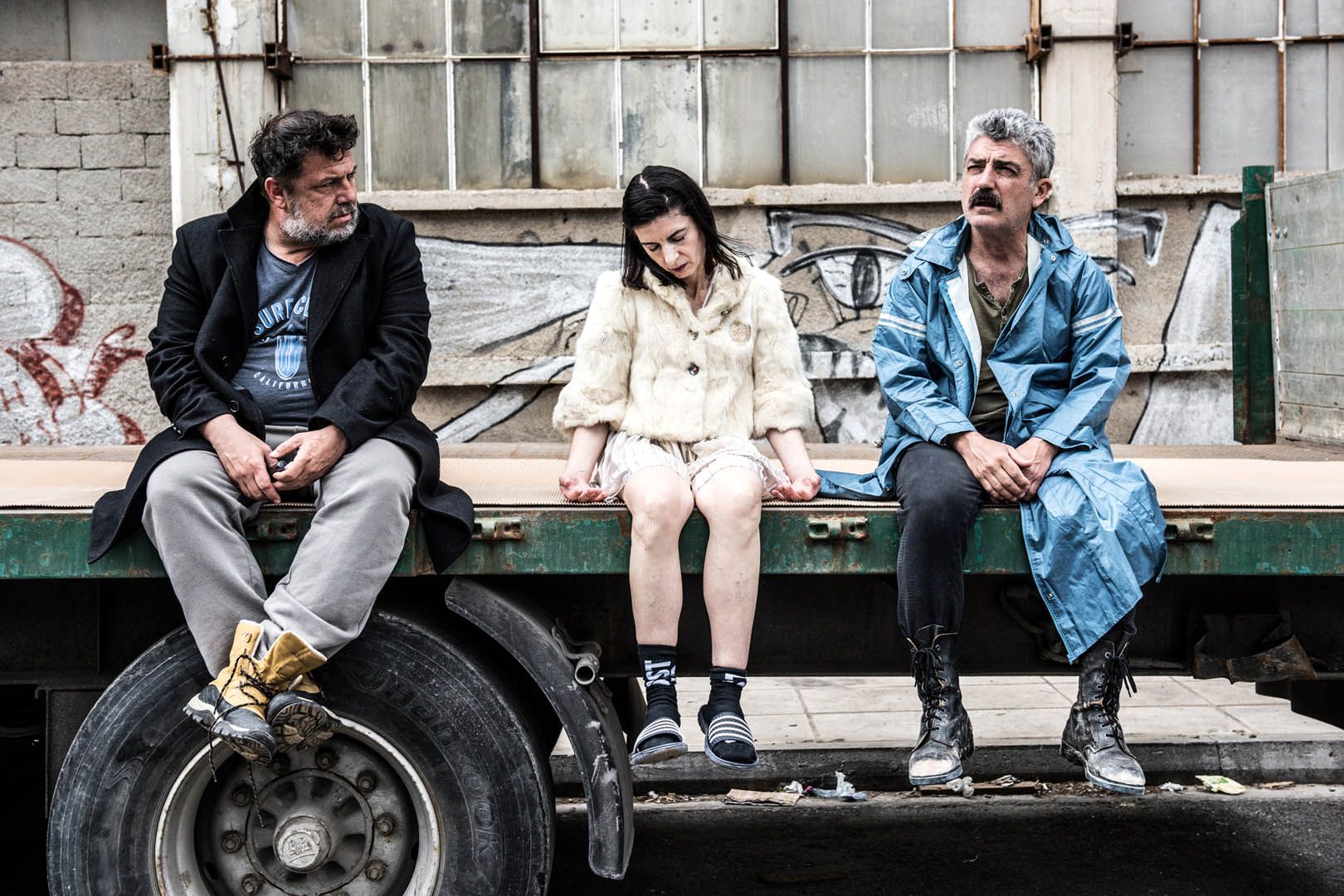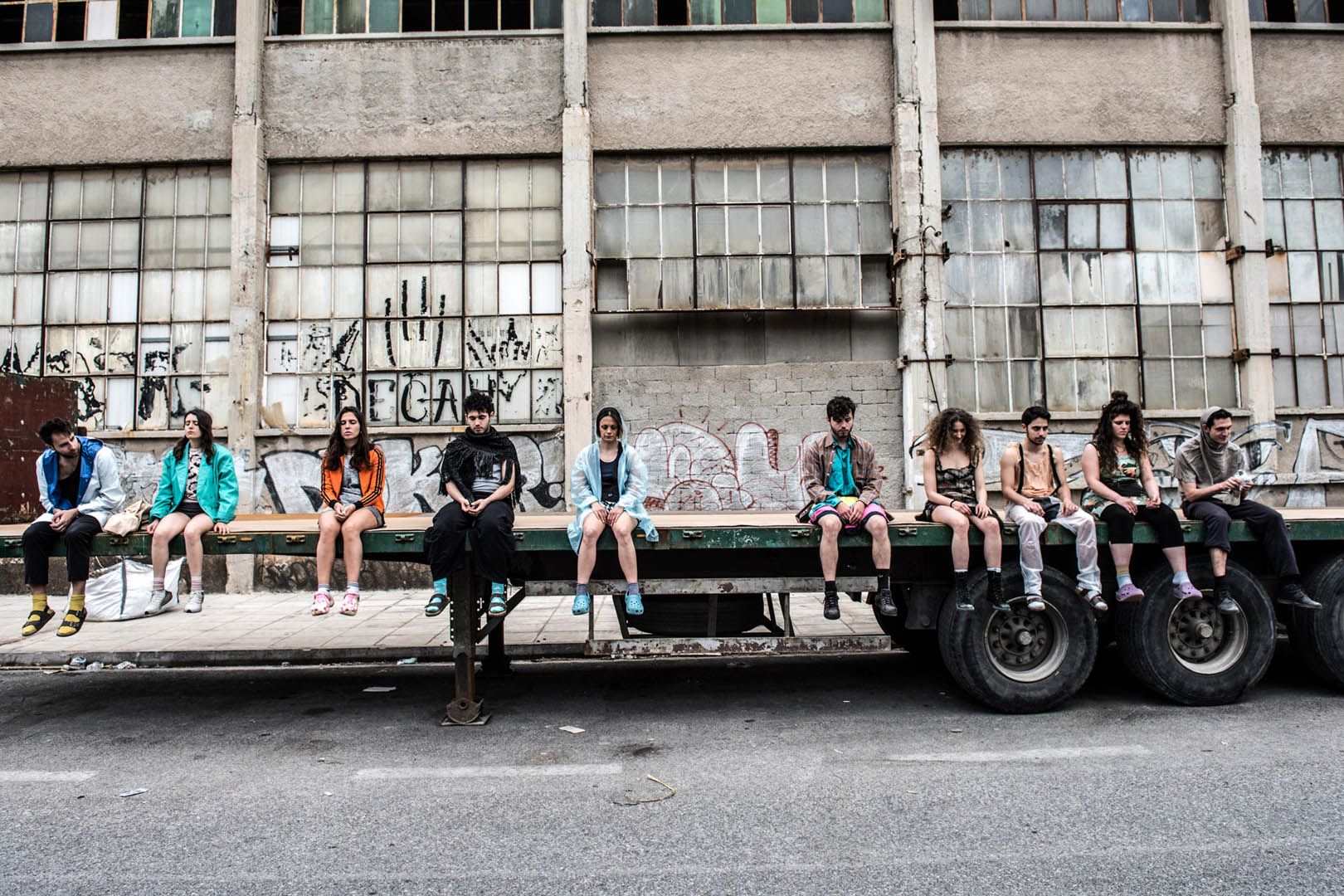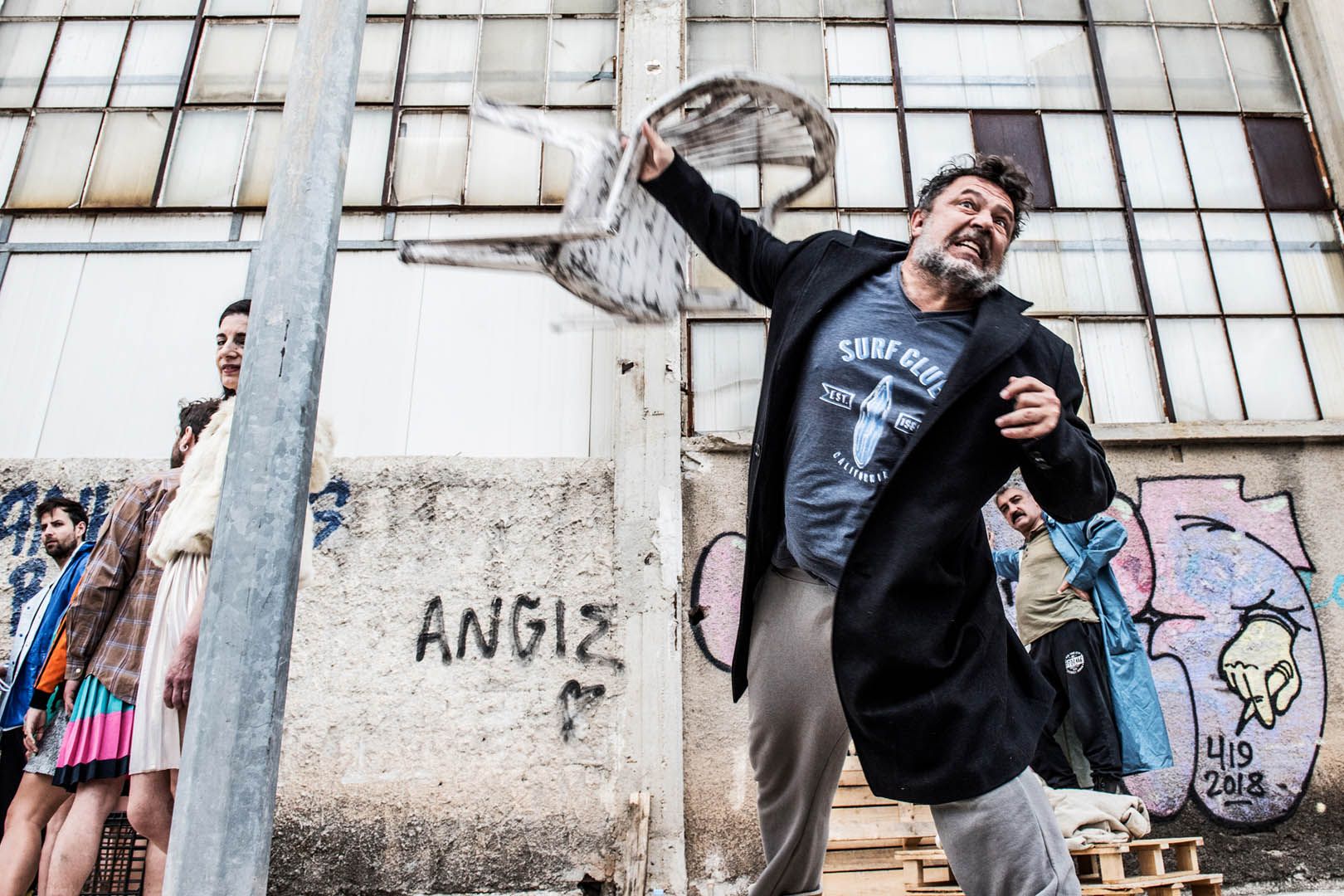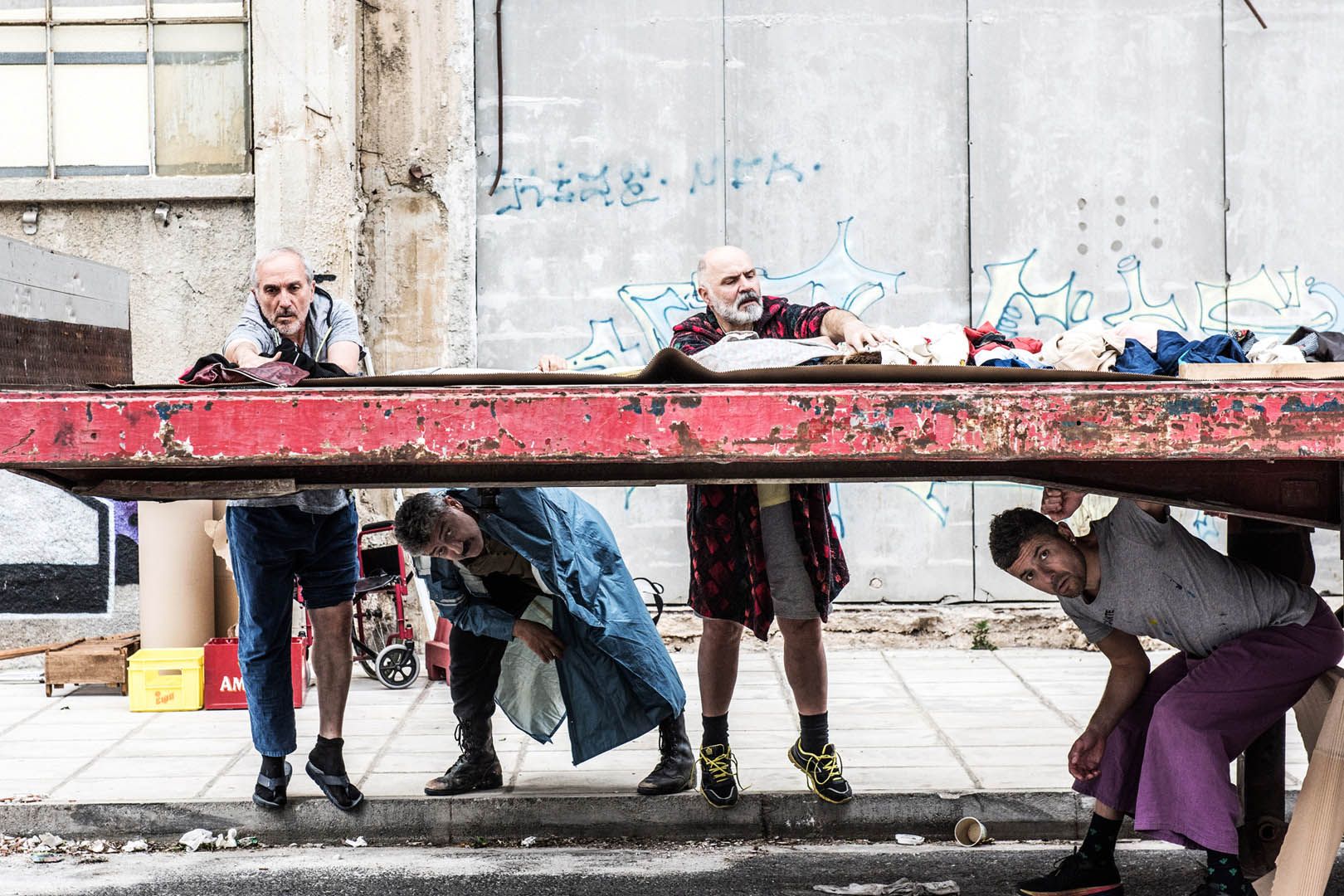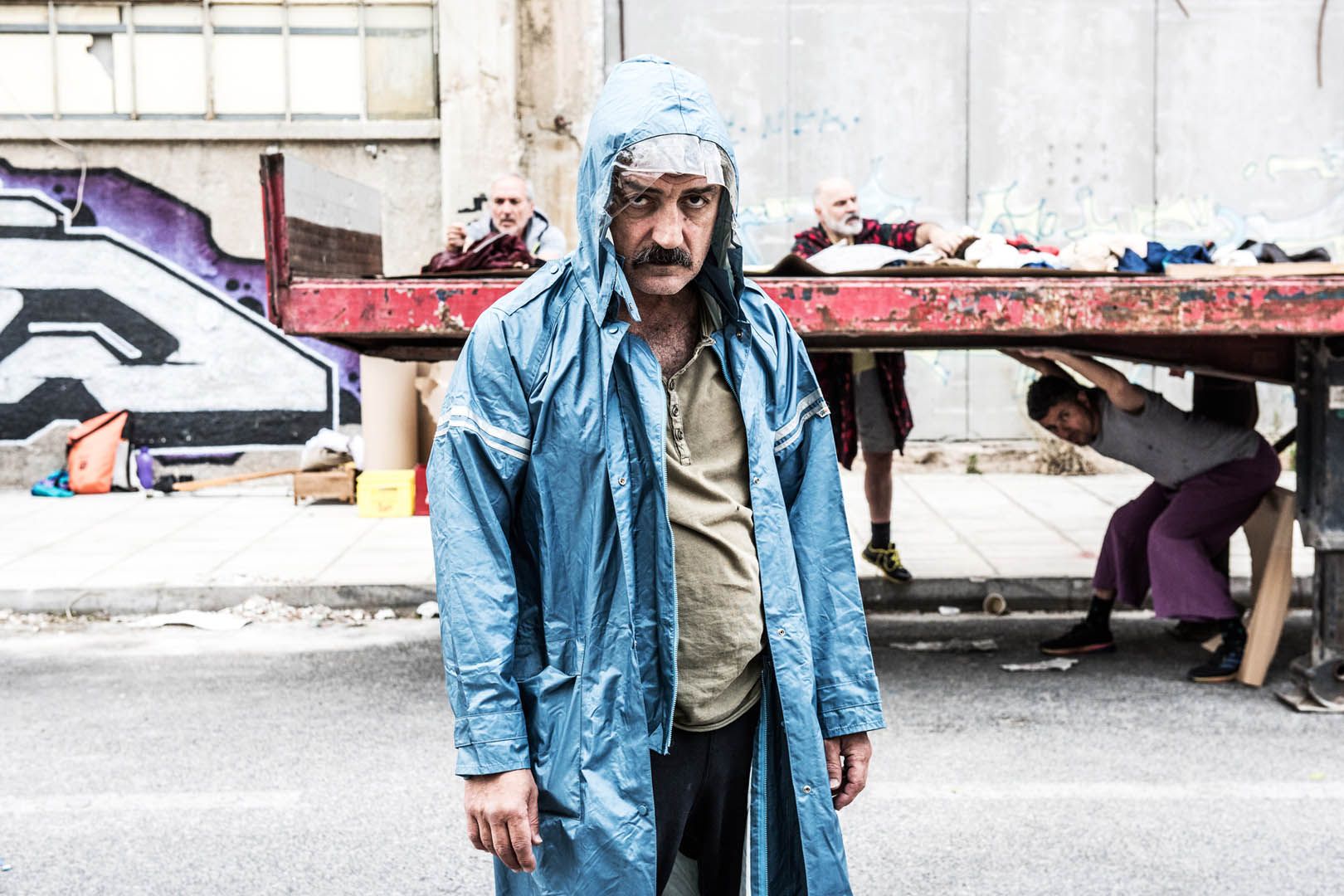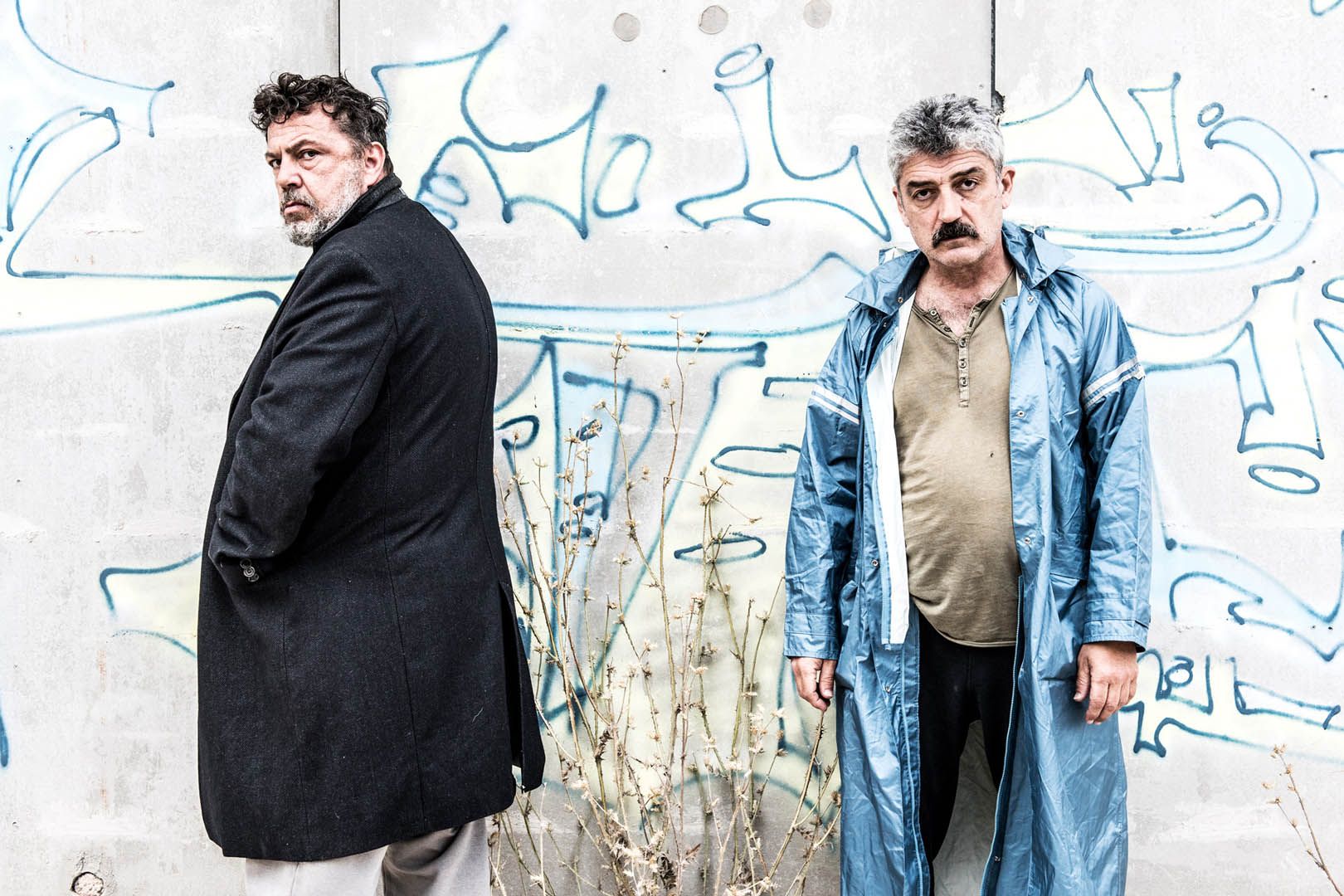AJAX by Sophocles
- Friday, August 5Curium Ancient Theatre
- Saturday, August 6Curium Ancient Theatre
- Performances start at:21:00Please arrive at Curium Ancient Theatre before 20:00
- Duration:
100 minutes
Sophocles’ tragedy Ajax is presented by the National Theatre of Greece, under the direction of Argyris Xafis and featuring an outstanding cast and crew.
In this tragedy, which was presented around 440 BC and is set during the tenth year of the Trojan War, Ajax, the greatest warrior of the Greek camp, following the death of Achilles, lays claim to the dead hero’s armour, but the Greek leaders decide to award it to Odysseus. Deeply offended by this terrible injustice, he takes his sword and goes out into the night to wreak revenge, but Athena makes him go mad, turning his anger into a wild rage which he unleashes onto the flocks of the Greeks, slaughtering them. When he realizes what he has done, his dignity cannot bear the humiliation and he commits suicide.
Ajax, central among Sophocles’ surviving tragedies, was written in peaceful times. However, the stage for the Peloponnesian War was already being set. Once an admired warrior on a par with Achilles, Ajax ends up becoming a deadly enemy of the army leaders and a pawn in the hands of gods, unable to grasp the spirit of a newly emerging era. This ancient tragedy does not recount the fall of the hero but his unique, posthumous redemption and glorification.
WITH ENGLISH SURTITLES
- Translation:
Nikos A. Panagiotopoulos
- Direction:
Argyris Xafis
- Adaptation:
Aspasia-Maria Alexiou, Argyris Xafis
- Set design:
Maria Panourgia
- Costume design:
Ioanna Tsami
- Music:
Kornilios Selamsis
- Choreography:
Hara Kotsali
- Lighting design:
Alekos Anastasiou
- Assistant director:
Maria Savvidou
- Music coach:
Melina Peonidou
- Vocal preparation:
Apostolos Kitsos
- Dramaturg:
Aspasia-Maria Alexiou
- First directing assistant:
Maya Kyriazi
- Second directing assistant:
Vasiliki Athanasopoulou
- Assistant to the Set designer:
Sofia Theodoraki
Cast (in alphabetical order):
- Menelaus:
Giannis Dalianis
- Agamemnon:
Nikos Hatzopoulos
- Odysseus:
Dimitris Imellos
- Athena:
Despina Kourti
- Eurysaces:
Tassos Mikelis
- Tecmessa:
Evi Saoulidou
- Ajax:
Stathis Stamoulakatos
- Teucer:
Christos Stylianou
- Chorus:
Asimina Anastasopoulou,
Eirini Boudali,
Dimitris Georgiadis,
Erato Karathanasi,
Afroditi Katsarou,
Lambros Konstanteas,
Fanis Kosmas,
Efstathia Lagiokapa,
Alkiviadis Maggonas,
Fotis Stratigos - Musicians on stage:
Menelaos Moraitis (tuba),
Manos Ventouras (french horn),
Spyros Vergis (trombone)
DIRECTOR’S NOTE
“How long is forever?”
The first word of Ajax is “Αεί” meaning “Always”. There is no other work by Sophocles that is so preoccupied by time as a theme. A little later, the chorus sings of time’s therapeutic and revelatory properties. However, Ajax sees the world as a fluid universe without its healing powers. Here only one thing is certain: uncertainty. There is no exception to this law.The woman that once was his spoils of war now adores him.
The Greeks that once were his friends and comrades now hate him.
Odysseus, whom he hates most of all, now pities him.
And “by coincidence”, Ajax shares the same destructive fate as his worst enemy, Hector.
Ajax sees the world as it actually is and, in his attempt, to swim against the tide, he finds himself. He is driven by his inner demon, his “eternal destiny”. In order to remain Ajax he must cease to be. He must take his own life, escaping choice, chance and change. “The rest is to be said to the dead in Hades” are his final words, as he becomes a myth for all eternity, passing from the ephemeral to the everlasting.
In this production, we aim to take advantage of the countless possibilities that present themselves while exploring what it truly means to have a play unfold in a time of war, and how these possibilities are conveyed in stage poetry beyond a literal description of war’s horrors. This is the core of my thinking in choosing a mixed chorus. Moreover, how should the endlessness and pointlessness of the Trojan War after nine whole years be presented theatrically? A war -much alike many present wars- aiming to over in fifteen days.
It is a terribly modern play. And by an unfortunately awful coincidence for me, a personal one. I want to dedicate this production to my father, whom I tragically lost a few months ago. And exactly as in Ajax, we had to endure a cruel and interminable wait for his burial. Sophocles captures how the world will be from now on, a world without Ajax. Without heroes. The speeches and dialogues after he is gone are unheroic. Full of cynicism, cheap threats, vindictiveness and shouting. Any sign of lyricism dies with Ajax. There is no greatness. Even death gradually seems more realistic. Though absent, he remains dynamically present in a world full of small people – exactly as the chorus said in the parodos: “The small without the great are an unguarded fortress”. At the same time, we are entering a more democratic era. An era where it is more possible to compromise and interact with each other’s views, in which Ajax would not have been able to endure.
The burden and responsibility of being a hero must now be shared with everyone. The virtue of aristocracy must now be democratized.
Argyris Xafis
NATIONAL THEATRE OF GREECE
Greece’s first state theatre company was the Royal Theatre, which was founded in 1901 and continued its operations until 1908. It was re-established under the name National Theatre in 1930 and opened for the public in March 1932. During its 90 years of life, the National Theatre of Greece (NTG) has succeeded in creating a powerful theatrical tradition. The NTG Drama School was founded in 1930, and has since operated in tandem with the GNT.
The repertoire of the National Theatre aims at polyphony, promoting a dialogue between tradition, the present and the future. The revival of Ancient Greek Drama remains a key area of interest for the National Theatre as part of its efforts to pay due respect to tradition while also exploring new theatrical trends. In 1938 the National Theatre of Greece performed its first open-air production of ancient drama, Sophocles’ Electra; the first performance after centuries at the Ancient Theatre of Epidaurus. In 1955 the NTG established the Festival of Epidaurus.
Today, the National Theatre has six stages: two at the Ziller Building, three in the Rex Theatre, as well as at the School of Athens – Irene Papas (open-air theatre). The National Theatre is always open to collaborations with theatres and artists – tours, joint productions with major theatres abroad, participation in international festivals, educational programmes, invitations to important contemporary artists; these are all part of the effort to broaden an already established network. Τhe NTG was a member of the European Theatre’s Union (2009-2020).
The Artistic Director of the National Theatre of Greece is the director Yannis Moschos.

